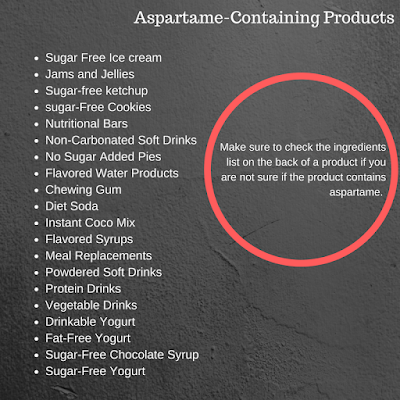Nutrition and Depression
 |
| Photo by Jean Gerber on Unsplash |
Welcome to the third installment of my nutrition and mental health series. Be sure to check out my earlier posts on anxiety and bipolar disorder!
I am not a doctor or psychiatrist. All information provided is for informational purposes only. Please, do not stop taking any medications without consulting your physician first.
Vitamin B12 (Cobalamin)
Yup, it's our good ol' buddy, B12. It has made an appearance for anxiety and bipolar, and here it is again for depression!
B12 supports the brain and central nervous system by assisting in normal nerve growth and development, improving communication between nerve cells, promotes stable adrenal function, provides emotional and mental energy and helps to bolster memory function.
Observational studies have found that as many as 30% of patients that are hospitalized for depression are deficient in Vitamin B12. The number may be higher since B12 testing is not a standard procedure when it comes to treating psychiatric patients. Why this may happen (other than dietary, or chronic disease issues) is not known at the moment.
One study followed 115 people that were diagnosed with a major depressive disorder for six months while monitoring their vitamin B12 status. They found that higher B12 levels correlated with better long-term psychological function, and the individuals whose moods improved the most over the six months had the highest vitamin B12 levels, while those whose depression did not improve had the lowest levels.
 Since B12 plays such important roles in the brain and many of those roles affect mood, there does seem to be a correlation between depression and B12.
Since B12 plays such important roles in the brain and many of those roles affect mood, there does seem to be a correlation between depression and B12.You may be especially affected by B12 if you have Crohn's, or celiac disease which makes it more difficult to absorb B12 in the gut. Older people may also have a harder time getting enough B12 as our bodies natural ability to absorb it decreases as we age. If you are vegan or vegetarian you may also have difficulty getting B12 in your diet, since it is mainly found in animal products, though many non-animal products can have B12 added in (such as cereal, tofu, etc.). But it is generally recommended for these particular populations that a B12 supplement be added to the diet.
Tryptophan
Whenever you have been suffering a depressive episode, have you just "lost time". Or memories of that time seem fuzzy? My first major depressive episode occurred way back in 2010/2011 and I don't remember much of it. I have a distinct memory of laying on the couch and watching tv. But...other than that. Not much. And it covered almost a 6 month period. One of the reasons this may have occurred is due to the amino acid tryptophan, which is a precursor to serotonin (the happy chemical). Studies have shown that depletion in tryptophan (which in turn causes a decrease in serotonin) may have an effect not only on mood but also on cognition. Which may account for memory loss during depressive episodes.Tryptophan is a precursor to serotonin, which helps us feel good and to sleep well. Low brain levels of serotonin are associated with poor memory and depressed mood. Tryptophan is an essential amino acid that is found in many protein-based foods, but all those other amino acids found with tryptophan compete with it to gain access to our brain through the blood-brain barrier. Some studies have suggested that consuming a high-glycemic index, or high-glycemic load meal (basically a high carbohydrate meal) can help to increase the availability of tryptophan to our brain. It does this due to the insulin response from your body when carbs are ingested. The insulin diverts the other amino acids to body muscles but does not use tryptophan, which leaves it scott free to get on into the brain.
Tryptophan is also the least abundant amino acid so it can be quite a war zone in the body for those little guys! Since tryptophan is the sole precursor for serotonin (whether it is produced in the brain or in other parts of the body) it is very important that tryptophan is able to gain access to the brain because without this amino acid serotonin production stops, and depletion may contribute to depression.
Studies of tryptophan depletion in never-depressed individuals typically show no or little effect on the lowering of mood. Though reports show that moderate mood lowering is seen more often in studies with healthy women vs. healthy men. But never-depressed healthy individuals that have a high risk of depression through familial risk factor (typically when someone in your immediate family has depression) acute tryptophan depletion produces apparent abnormalities in mood control. While remitted depressed patients can have an acute depressive relapse by temporarily lowering tryptophan levels. This suggests that if you have an existing vulnerability to your serotonin system (either through a previous diagnosis of depression or through genetics) you are more susceptible to react to tryptophan depletion.
 Increasing tryptophan in the diet (or through supplements) can also help improve memory and sleep as well as emotions, due to serotonin involvement in these areas of the brain as well.
Increasing tryptophan in the diet (or through supplements) can also help improve memory and sleep as well as emotions, due to serotonin involvement in these areas of the brain as well.While consuming foods with tryptophan can be helpful, for many of us it may be more beneficial to look at what we are doing that may be disrupting tryptophans ability to make it to our brains. The biggest one that many of us (including myself) may be doing is consuming aspartame.
Aspartame
Aspartame is a low-calorie sweetener most commonly found in diet soda, though it has started to be used in many other products. It is also sold straight-up as a non-nutritive sugar substitute (not-naming names, but its typically sold in the blue packets). Aspartame is made of 50% phenylalanine, 40% aspartic acid, and 10% methanol. Its history as a "safe" sweetener has been very controversial. While it is considered "safe" by the FDA, some studies disagree with these findings. But from looking at specific associations between aspartame and depression, I can say that the findings definitely are not looking too great.
In one study, on mice, they were given a daily oral dose of 0, 13, 133, or 650 mg/kg of aspartame for 30 days. These doses were to reflect the ranges of average consumption, and over-consumption of aspartame, similarly found in the human population. Sadly, these little mice gave their lives for this study, so if you have some time today, make sure to tell them a little thank you. From the investigation of their brain, it was found that serotonin was decreased in several regions of the brain. This study suggests that an increased supply of phenylalanine may be responsible for a decrease in tryptophan uptake by the brain tissue or for depressing the conversion of tryptophan to serotonin.
One caveat to this study is that mice metabolize aspartame different from humans.
Studies on human subjects suggest that those with a history of depression may be especially vulnerable to the side-effects of aspartame on the brain. One study was halted early due to the severity of reactions to aspartame within the group of patients that had a history of depression. That's pretty worrisome, in and of itself.
While another study put people on a "high" aspartame diet of 25 mg/kg compared to a low aspartame diet. The "high" aspartame diet was only HALF of what the FDA sets as an adequate daily intake of aspartame. After only 8 days the participants on the "high" diet had a more irritable mood, exhibited more depression, and performed worse on certain brain function tests. These people did not have a pre-existing history of mental illness.
 It is generally thought that aspartame causes this increase of depression and depression symptoms due to its concentration of phenylalanine, which competes with tryptophan to gain access to the brain. When a large quantity of one amino acid is present in the bloodstream it will occupy the most space on the transporter that takes them over the blood-brain barrier. People who consume a lot of diet soda (or other aspartame-containing foods) will usually have a higher concentration of phenylalanine in their system which could lead to a decrease in serotonin.
It is generally thought that aspartame causes this increase of depression and depression symptoms due to its concentration of phenylalanine, which competes with tryptophan to gain access to the brain. When a large quantity of one amino acid is present in the bloodstream it will occupy the most space on the transporter that takes them over the blood-brain barrier. People who consume a lot of diet soda (or other aspartame-containing foods) will usually have a higher concentration of phenylalanine in their system which could lead to a decrease in serotonin.
Because of aspartames ability to access the brain, and its ability to prevent other important amino acids from gaining access to the brain it can potentially disrupt a wide range of processes in the body.
If you consume a lot of diet soda or use aspartame as your go too sweetener, I would highly suggest cutting these products out of your life or at least cutting the amount down. Your brain will most definitely thank you!
Points of Contention: Carbohydrates
Some studies recommend that people with depression should consume carbohydrates to increase their serotonin levels. As stated above, consuming carbohydrates signals the body to release insulin which will require other amino acids to go down a different metabolic pathway leaving tryptophan to go to the brain and help produce serotonin. However, this system has only been shown to work with the consumption of very simple, or refined carbohydrates, as even a small amount of protein will negate this pathway. Even the protein found in whole grain pasta would be enough to dampen this. While there is nothing wrong with having candy, cakes, and other simple/refined sugars in the diet, eating them too often can lead to mood swings due to the blood sugar going on a roller coaster, and can potentially lead to issues such as diabetes, cavities and may exacerbate cardiovascular issues. So just keep that in mind when evaluating what changes you would like to make to your dietary habits.
For more depression resources please click here.
If you are feeling suicidal or violent, please call: 1-800-273-8255
If you enjoyed this series, let me know! Please comment, like or share. And if there are any particular mental disorders that you would like me to cover in the future, be sure to tell me!
1)Prescription for Nutritional Healing, Fifth Edition: A Practical A-to-Z Reference to Drug-Free Remedies Using Vitamins, Minerals, Herbs & Food ... A-To-Z Reference to Drug-Free Remedies)
1)Prescription for Nutritional Healing, Fifth Edition: A Practical A-to-Z Reference to Drug-Free Remedies Using Vitamins, Minerals, Herbs & Food ... A-To-Z Reference to Drug-Free Remedies)


Comments
Post a Comment